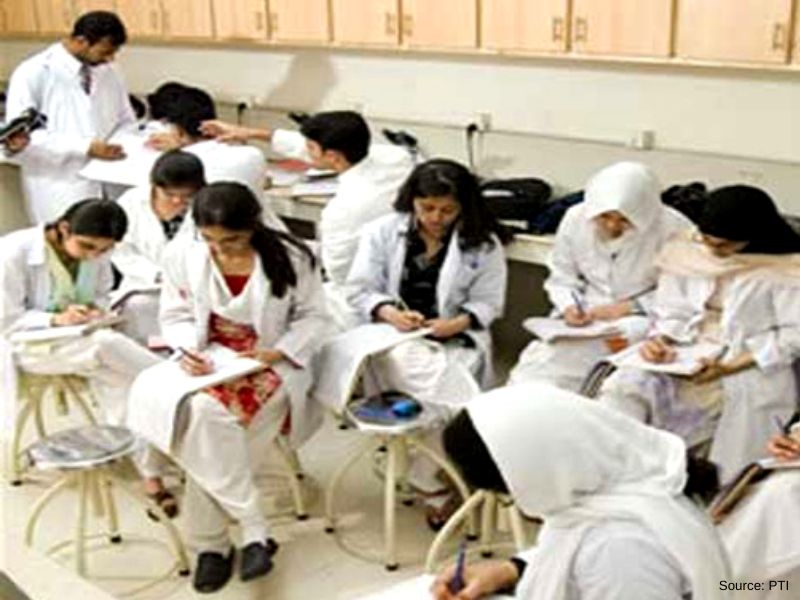Dipta Joshi
The Delhi High Court on Wednesday (July 20) dismissed a petition by Indian students pursuing medical degrees in the Philippines. The students were seeking a one-time exemption against the retrospective implementation of Foreign Medical Graduate Licentiate Regulations 2021 (FMGL) enacted by the National Medical Commission (NMC), the country’s apex medical education regulator.
The new FMGL regulations will deprive 15,000 Indian students who got admitted to colleges in the Philippines from practicing within India on completion of their course. The students were admitted during August, September and October of 2019, 2020 and 2021.
“The students have been seeking a one-time relief against the retrospective regulations because they are being punished for no fault of theirs. When the students got admitted into the medical universities and colleges in Philippines, the medical courses were approved by the erstwhile Indian medical education regulator, the Medical Council of India. The students have followed all due procedures and many parents have put their entire life’s savings to send their children abroad because they could not afford private college fees in the country,” says Anuj Goyal, founder, Get My University.
On November 18, 2021, the NMC which replaced the Indian Medical Council of India enacted the new Foreign Medical Graduate Licentiate Regulations 2021 norms amending earlier regulations. Enforceable with immediate effect, the norms require students to have completed a minimum duration of 54 months, an internship of minimum 12 months in the same foreign medical institution and mandatory registration as medical practitioners in the country the student has obtained his or her degree from.
The new NMC norms also mandate foreign institutions to have English as a medium of instruction and follow the curriculum as prescribed by the NMC in India. Further these students are expected to complete an additional internship of minimum 12 months within India.
The country’s extremely competitive admission process to get into the country’s 275 highly subsided government run colleges (Rs 1.11 lakh tuition fees per annum), as compared to its 321 private and deemed colleges (Rs 18-30 lakh tuition fees per annum) has resulted in parents opting to send their wards overseas seeking cheaper medical education (average Rs seven lakh tuition fees per annum).
According to the Union education ministry data, more than 62,000 Indian students are studying medicine overseas in countries like Ukraine, Russia, China, Philippines, Nepal, Armenia, Kyrgyzstan, Kazakhstan, Bangladesh, Georgia etc. The countries offer five-six year medical degree courses that thus far complied with the norms approved by the Indian medical education regulator.
However, NMC’s new norms have made it difficult for foreign universities to meet its mandatory requirements. The new regulations want students studying abroad to get a mandatory license from the country’s competent authority to practice in their country. Meanwhile universities have clearly stated that giving such an assurance to students is beyond their mandate since such decisions are subject to the country’s immigration laws and employment demands.
While the new norms are applicable to all foreign graduates, they have been especially discriminatory to the 15,000 Indian students reading medicine in the Philippines.
Medical education in the Philippines includes a two year BS Biology pre-medicine curriculum which is a pre-requisite for the remaining four years of medicine course. The subjects taught in the two years of pre-medicine studies are not considered a part of the student’s medical training under NMC’s new norms that prescribe a minimum of over 5.5 years or 54 months of medical course for students.
The new norms clearly state students who don’t fulfill the criteria would not be allowed to write the exit exam (known as the foreign medical graduate exam (FMGE) until last year). Clearing the exit exam is mandatory for all foreign returned medical students who want to apply for permanent registration that allows them to practice MBBS within the country.
In May this year, the Supreme Court (SC) too upheld the NMC’s guidelines prescribing strictures for foreign medical graduates before they are registered to practice in India. The SC had on an earlier occasion in April asked the NMC to draw up a one-time scheme to ensure students who missed their clinical practice due to the COVID pandemic related closures, the temporary visa bans and the Russia-Ukraine war were given an opportunity to complete their clinical practice.
Responding to the SC, the NMC in its affidavit submitted July 18 mentioned a one-time relaxation to foreign medical graduates who had completed their course from their institutes through online mode but had not physically attended clinical training due to the extraordinary situation brought by COVID-19 pandemic, Russian-Ukraine war etc.
The students would be permitted to write the FMGE qualifying which will allow them to undergo compulsory rotating medical internship (CRMI) – for two years. The affidavit mentioned the Russian Federation’s willingness to allow Indian students evacuated from Ukraine to continue their medical education in the Russian Federation. A similar offer has been made by the Republic of Kazakhstan.
However, none of these relief measures would be applicable to the student community studying in the Philippines since the NMC does not consider their course valid.
The students now plan to file a review petition of the Delhi High Court judgment. According to Aniket Chaturvedi, a student of 2021 batch “Most top notch medical institutions in the US, Australia and Canada constitute a pre-medicine course besides a four year medicine course. The Philippines follow a similar pattern. The NMC’s decision is very unfortunate. The regulator needs to take a sympathetic view of our situation, else we will lose two years of our career.”
